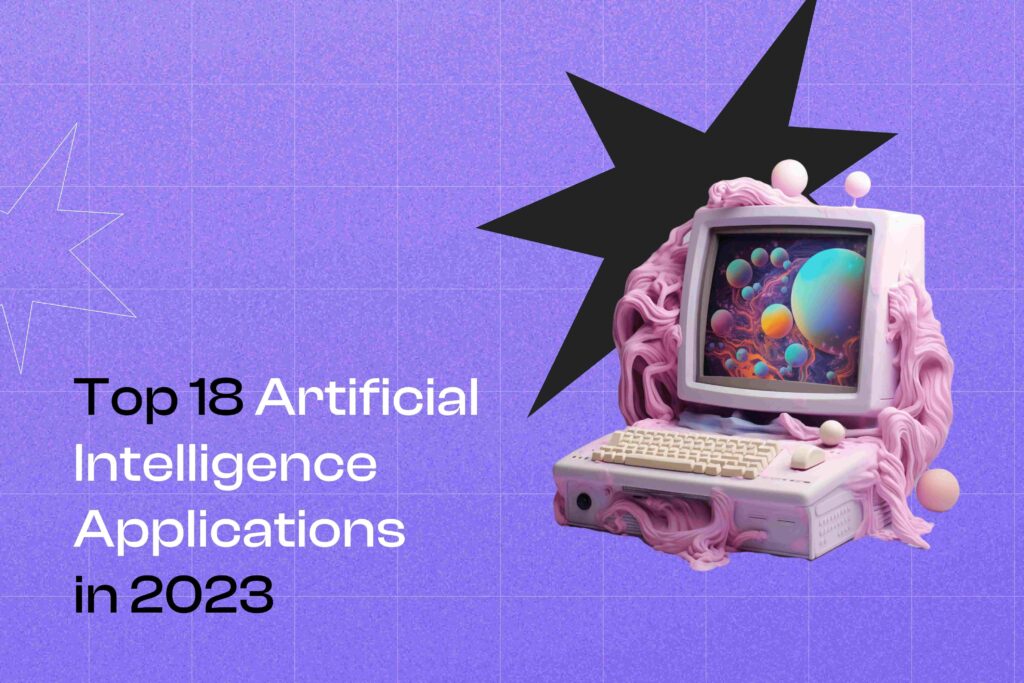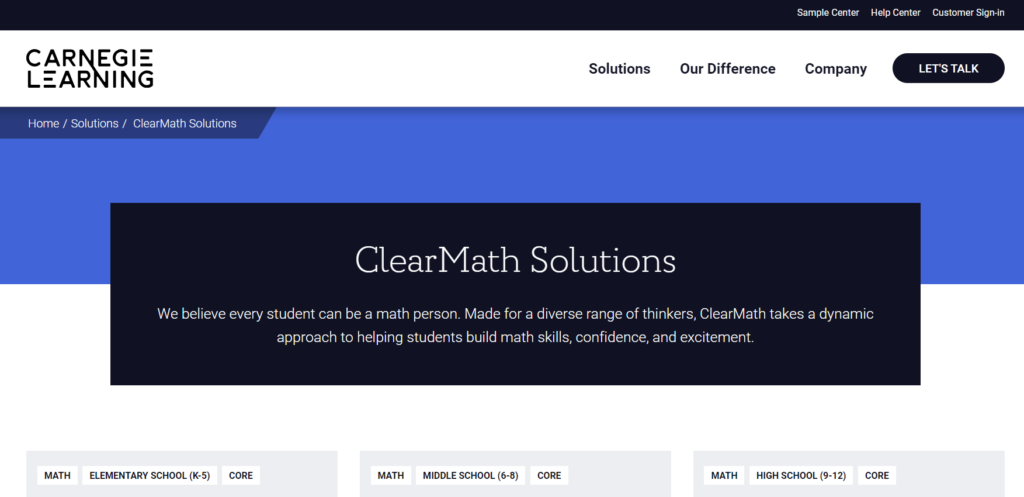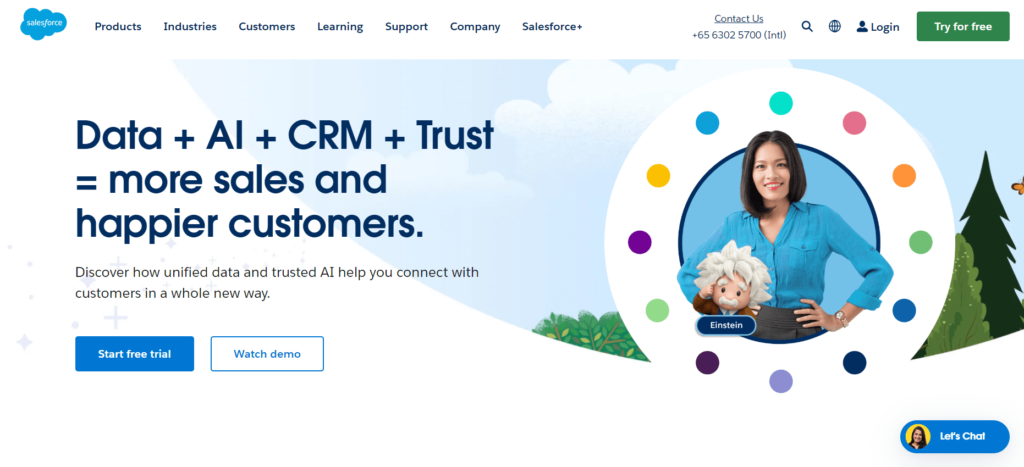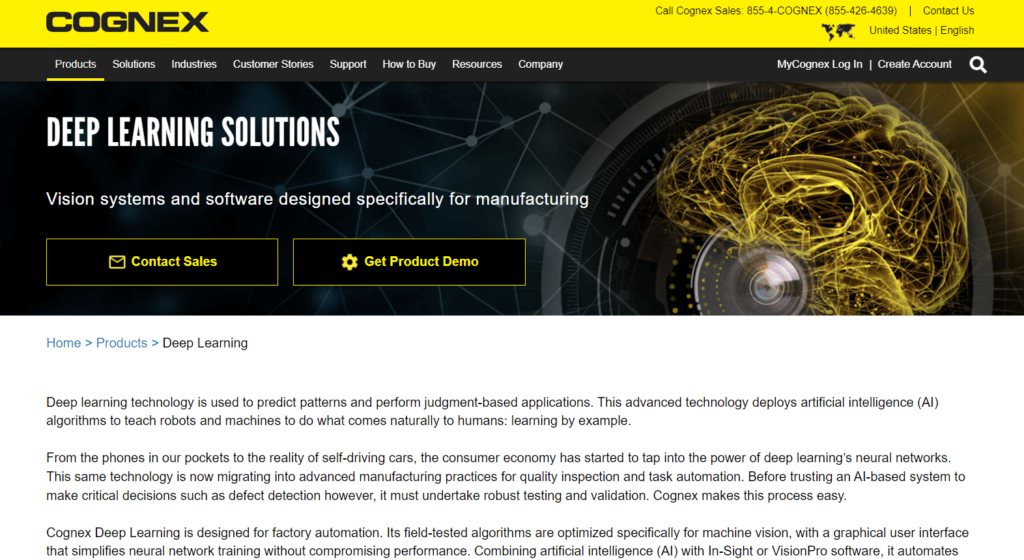Artificial Intelligence (AI) is increasingly influencing and redefining various sectors as we advance into the future. Its applications are vast and diverse, spanning industries from healthcare and education to e-commerce and finance, among others. This article explores how AI revolutionizes these sectors by enhancing efficiency, accuracy, and productivity and introducing innovative solutions to complex problems.
AI is transforming healthcare by revolutionizing patient diagnosis and education by personalizing learning experiences. In e-commerce, it’s enhancing customer experiences, and in finance, it’s instrumental in fraud detection and prevention. Moreover, AI’s role in data security and environmental solutions, such as disaster prediction and pollution monitoring, is significant.
We will further discuss how AI technologies are 01.2utilized in robotics, navigation systems, and facial recognition to enhance safety and efficiency. Let’s explore the future of AI and its remarkable applications in 2023.

Table of Contents
- AI in Healthcare
- AI in Education
- AI in E-Commerce
- AI in Finance
- AI in Marketing
- AI in Transportation
- AI in Robotics
- AI in Agriculture
- AI in Gaming
- AI in Navigation
- AI in Facial Recognition
- AI in Data Security
- AI in Lifestyle
- AI in Astronomy
- AI in Automotive Industry
- AI in Chatbots
- AI in Quality Control
- AI in Environmental Solutions
- Summary
- Frequently Asked Questions
Artificial Intelligence in Healthcare
Artificial Intelligence (AI) is revolutionizing healthcare, providing unprecedented advancements in patient care and cost reduction. AI algorithms can analyze chronic conditions from lab results, enabling early diagnosis. Deep learning, a subset of the machine learning algorithm, is utilized to develop robust solutions that process vast amounts of training data with minimal human intervention. Moreover, AI’s advanced capabilities extend to drug development, where it can analyze historical medical data to expedite the creation of new treatments.
In healthcare, AI’s potential is vast. It can assist in diagnostics, predict diseases, and administer personalized treatment plans, mitigating risks that could remain undetected. This transformation enhances patient safety and improves prognosis.
Download the Summary of Top 18 Artificial Intelligence (AI) Applications now!
Don't have time to read everything or need a summary of the key points?
Healthcare AI examples:
- Google AI: AI system that can detect cancer cells in breast tissue images with greater accuracy than human pathologists.
- IBM Watson: Watson for Oncology helps doctors personalize cancer treatment plans for patients.
AI in Education

Artificial Intelligence (AI) is significantly reshaping the educational landscape. Automating administrative tasks allows educators to dedicate more time to their students, enhancing the quality of education. AI’s role in personalized learning is crucial, with intelligent tutoring systems offering tailored support to individual learners, allowing them to progress at their own pace. Furthermore, Generative AI assists in creating course materials and teaching aids, engaging students with innovative approaches, and ensuring an effective learning environment.
For organizations aiming to enhance their training programs, the integration of AI is a promising strategy. It offers numerous benefits, such as tailoring instruction plans to each employee’s learning style and level of knowledge. It also aids in producing detailed class outlines and multimedia summaries. Thereby, it enhances work performance through immersive learning activities facilitated by specialized software powered by the latest advancements in AI.
Education AI examples:
- Knewton: Knewton Alta, an AI-powered learning platform.
- Carnegie Learning: MATHia, an AI-powered math tutoring platform.
Artificial Intelligence in E-Commerce

Artificial Intelligence (AI) is at the forefront of a major shift in the e-commerce industry. It enhances the online shopping experience by offering personalized product recommendations based on customer preferences, optimizing inventory management, and reducing fraud risks through pattern analysis. This protects businesses and consumers from financial losses and improves overall shopping experience. The implementation of AI-enabled chatbots provides round-the-clock customer service without overburdening human agents. This has resulted in higher customer satisfaction and increased brand loyalty among retailers.
E-Commerce AI examples:
- Amazon: Amazon’s product recommendation system uses AI to suggest products to customers they are likely to be interested in.
- Alibaba: Alibaba’s AI-powered chatbots help customers find the products they are looking for and answer their questions.
AI in Finance
Artificial Intelligence (AI) is transforming the finance sector by refining credit decisions, managing risk levels, and detecting fraud. Its capacity to analyze data and identify details that might otherwise go unnoticed is invaluable in mitigating potential losses.
Financial institutions are employing machine learning algorithms to evaluate loan risks. These algorithms can swiftly and accurately process large volumes of complex data, ensuring equitable access to credit for consumers and providing greater security than traditional methods.
For traders and investors, deep learning algorithms offer AI tools and opportunities for increased profits through efficient decision-making processes. These processes are based on automated analysis of market trends powered by machine learning technology. As AI continues to evolve, we anticipate further enhancements in the finance sector, leading to faster services with improved accuracy and heightened safety.
Finance AI examples:
- BlackRock: Aladdin Risk system uses AI to help financial institutions manage risk.
- Goldman Sachs: Goldman Sachs Marcus, an AI-powered online lending platform.
Artificial Intelligence in Marketing
Artificial Intelligence (AI) is reshaping the marketing landscape, enabling businesses to engage with their customers in a more personalized and data-driven manner. One notable example of AI’s impact is Netflix’s use of predictive analytics to provide customized movie suggestions based on viewers’ past preferences. This strategy enhances the user experience, boosts customer retention, and strengthens brand loyalty. Similarly, social media platforms like Facebook employ AI algorithms to analyze vast amounts of user data, including trends and hashtags, providing businesses with critical insights into what engages their audience. With this information, companies can design highly targeted and effective campaigns, leading to increased engagement and conversions and, ultimately, a higher return on investment.

Marketing AI examples:
- Adobe: Adobe Experience Cloud, which uses AI to help businesses automate their marketing tasks and personalize their marketing campaigns.
- Salesforce: Salesforce Einstein, which uses AI to help businesses improve their customer service and sales.
AI in Transportation
Artificial intelligence is making significant strides in the transportation sector. Autonomous vehicles and real-time route optimization are examples of how AI enhances safety and efficiency. Companies like Toyota, Audi, Volvo, and Tesla utilize machine learning technology to emulate human driving behavior and improve hazard detection.
Moreover, AI’s impact extends to ride-sharing services. AI systems enhance communication between drivers and riders and aid in decision-making, improving the overall user experience. As AI continues to evolve, we can expect further enhancements, opening up new possibilities and potential for transportation methods. The future of travel is likely to be significantly influenced by the continuous development of AI platforms.
Transportation AI examples:
- IBM: IBM Transportation Management System, which uses AI to help businesses plan, execute, and optimize their transportation operations.
- GE: GE Digital Predix APM, which uses AI to help businesses predict and prevent asset failures in their transportation fleets.
- Samsara: Samsara Fleet Management Platform, which uses AI to help businesses track their vehicles, manage their drivers, and optimize their fleet operations.
Artificial Intelligence in Robotics
Artificial Intelligence (AI) has become an essential component in the evolution of robotics. It enables robots to comprehend and respond to their environment in ways previously only achievable with human intervention. Through advancements in machine learning, computer vision, and natural language processing, robots can now identify and manipulate objects, navigate autonomously, and understand spoken language.
The continued advancement of AI promises even further progress in the field of robotics. As robots become more intelligent and capable, they can take on tasks that are currently challenging or impossible, opening up a new range of possibilities for their use.
Robotics AI examples:
- Boston Dynamics: Spot, a four-legged robot that can be used to inspect dangerous or inaccessible areas.
- Universal Robots: UR10 is a collaborative robot that can work safely alongside humans.
AI in Agriculture
Artificial Intelligence (AI) is poised to revolutionize agriculture, offering advancements in precision farming, soil analysis, and crop monitoring. This could lead to increased yields and more sustainable farming practices. For instance, Plantix, an AI-driven application, uses image recognition to identify potential defects or nutrient deficiencies in soil. This provides farmers with valuable insights into the health of their land, leading to more effective and sustainable farming practices.
Another example is Blue River Technology’s See & Spray, a robotic system that leverages computer vision technology. This system allows for the precise application of herbicides on cotton plants, optimizing operations while minimizing environmental impact. This, in turn, supports increased food production to meet the demands of our growing global population.
Agriculture AI examples:
- Deere & Company: See & Spray, an AI-powered sprayer that identifies and targets weeds.
- Agco: Fendt IDEAL combines harvester, which uses AI to optimize the harvesting process.
AI in Gaming

Artificial Intelligence (AI) is making significant strides in the gaming industry. It enhances the gaming experience by integrating intelligent non-playable characters (NPCs), adaptive difficulty settings, and predictive behavior assessment. This technological advancement creates an immersive gaming environment that is more engaging and exciting for players.
A prime example of AI’s potential is AlphaGo, a software developed with AI technology. It has mastered the complex board game Go, showcasing the power of AI in gaming. Similarly, First-Person Shooter (FPS) games like FEAR have incorporated AI to create unpredictable adversaries, adding an extra layer of challenge for players.
As the development of AI continues to progress, it is anticipated that the gaming industry will move closer to creating simulated worlds where gamers feel fully immersed. This evolution of computer science will transform how we interact and perceive virtual realities, offering a more engaging and realistic gaming experience.
Gaming AI examples:
- OpenAI: Five, a team of AI-powered bots that can play Dota 2 at a superhuman level.
- DeepMind: AlphaGo Zero, a computer program that can play the game of Go at a superhuman level.
AI in Navigation
Artificial Intelligence (AI) is dramatically reshaping the landscape of navigation. AI-powered route planning applications leverage predictive analytics to calculate the most efficient routes, considering road conditions, restrictions, traffic patterns, and user preferences. Major companies like Uber integrate AI for streamlined operations management, while logistics firms utilize AI for enhanced congestion assessment and routing services. AI’s robust capability to analyze vast data sets is also being leveraged to predict traffic congestion and potential road hazards, thereby improving road safety. Furthermore, AI can enhance vehicular security measures, such as predictive maintenance and theft prevention, thereby reducing the risk of accidents and vehicular damage.
Navigation AI examples:
- Google Maps: Google Maps’ turn-by-turn navigation app uses AI to provide users with the fastest and most efficient route to their destination.
- Waze: Waze’s traffic navigation app uses AI to provide users with real-time traffic information and help them avoid traffic jams.
Artificial Intelligence in Facial Recognition
Artificial Intelligence is increasingly leveraged in facial recognition technologies, providing various security and personalization applications. Deep learning algorithms are integral to these systems, offering accurate identification of individuals based on unique facial characteristics.

A myriad of sectors, including biometrics, forensics, and the healthcare industry, stand to benefit from AI-enhanced facial recognition technology. Deep learning methodologies like Convolutional Neural Networks (CNNs), Deep Neural Networks (DNNs), and Recurrent Neural Networks are utilized in facial recognition technologies to ensure reliable and accurate results. As AI continues to evolve, it promises to unlock new potentials across various industries that require enhanced security measures, thanks to accurate facial recognition capabilities powered by cutting-edge technologies.
Facial Recognition AI examples:
- Clearview AI: Clearview AI’s facial recognition system allows law enforcement agencies to identify suspects and track down criminals.
- Amazon: Amazon Rekognition, a facial recognition service that businesses can use to verify identity and authenticate users.
AI in Data Security
Artificial Intelligence (AI) is instrumental in fortifying data security in today’s digital landscape. It leverages intricate machine learning algorithms to discern patterns indicative of potential cyber threats, enabling preemptive protective measures to secure sensitive data.
AI’s capabilities surpass traditional rule-based systems. By using artificial intelligence applications employing advanced machine learning techniques, AI can rapidly and accurately analyze large datasets to identify security risks. This technology empowers organizations to protect against malicious activities, fostering trust with customers and stakeholders.
As AI advances, it will become increasingly efficient for companies to implement bespoke security measures that capitalize on AI’s effectiveness in combating cyber threats. Moreover, AI-driven security solutions are progressively enhancing data protection mechanisms, bolstering our defenses against cybercrime, and ensuring the safety of our digital assets.
Data Security AI examples:
- Darktrace: Darktrace’s AI-powered security system can autonomously detect and respond to cyberattacks.
- SentinelOne: SentinelOne’s Singularity XDR platform uses AI to protect endpoints from malware and other threats.
AI in Lifestyle

Artificial Intelligence (AI) is increasingly permeating our daily lives, streamlining routine tasks and enhancing overall efficiency. From fitness trackers to smart home devices, AI transforms how we live and interact with technology.
Virtual personal assistants like Alexa and Cortana, powered by Natural Language Processing (NLP), can interpret and respond to human speech, assisting with tasks tailored to our preferences. These AI-driven assistants enhance productivity, provide convenience, and entertain our lives. As these systems evolve and learn from our behavior, they continually refine their assistance, making technology a seamless part of our lives.
AI is also significantly impacting the fitness industry, where it’s used to personalize workout plans based on an individual’s health data and progress. This helps users achieve their fitness goals more efficiently and enhances their overall wellness journey.
Lifestyle AI examples:
- Apple: Siri, a voice-activated virtual assistant.
- Amazon: Alexa, a voice-activated virtual assistant.
AI in Astronomy
Artificial intelligence is increasingly instrumental in the field of astronomy, offering diverse and innovative applications. It aids astronomers in analyzing extensive data sets from telescopes or rovers, uncovering critical information that human researchers may otherwise overlook. Furthermore, AI is utilized to develop new tools that bolster the scientific exploration of the cosmos, enabling the faster identification of celestial bodies. The ongoing advancement of this technology holds the potential to propel us into uncharted territories, unlocking a more profound understanding of the cosmos.
Astronomy AI examples:
- Google AI: Exoplanet Explorer, a website that uses AI to help astronomers identify and study exoplanets
- NASA: James Webb Space Telescope, which uses AI to process images and data from the telescope
AI in Automotive Industry
Artificial Intelligence (AI) is catalyzing significant advancements in the automotive industry. It facilitates the development of self-driving cars and advanced driver assistance systems, ensuring safer journeys. AI research and tools are being deployed to create sophisticated algorithms that mimic the human brain and cognition for autonomous navigation and object detection, thereby reducing the likelihood of collisions. This innovative technology enhances road safety and efficiency while enabling detailed vehicle analysis. Furthermore, AI is promoting personalized accessibility and facilitating personal deliveries within vehicles. The evolution of machine learning and advanced AI is paving the way for unprecedented automation potential, transforming our lives and setting us on a path filled with endless possibilities.
Automotive Industry AI examples:
- Tesla: Tesla Autopilot, a self-driving car system.
- Waymo: Waymo One, a self-driving car service.
AI in Chatbots
Artificial Intelligence (AI) is revolutionizing customer service by introducing chatbots. These automated programs, powered by machine learning algorithms, can engage with customers 24/7, delivering real-time personalized assistance. They are designed to understand and respond to text-based inquiries, performing tasks such as answering product questions, booking appointments, or providing recommendations. This leads to prompt and accurate user experiences, enhancing customer satisfaction and fostering brand loyalty.
Chatbots AI examples:
- Drift: Drift’s chatbot platform helps businesses qualify leads and chat with customers.
- HubSpot: HubSpot’s chatbot platform allows businesses to automate their customer service and sales conversion.
AI in Quality Control

Artificial Intelligence (AI) significantly enhances the quality control process by integrating deep learning algorithms. This integration accelerates and refines production processes, making them more cost-effective. Automating repetitive cognitive tasks enables these systems to detect product defects, generate comprehensive audit reports, and ensure adherence to standards at every stage.
Sophisticated machine-learning models contribute significantly to improving quality control measures. These models autonomously develop parameters to measure quality, providing greater precision while reducing the need for constant human supervision. These systems continually strive for excellence.
As technology continues to evolve, so does its impact on quality monitoring procedures. Manufacturers can now more efficiently monitor product quality, increasing customer satisfaction and reducing operational costs.
Quality Control AI examples:
- Cognex: Cognex Deep Learning Vision Systems use AI to inspect products for defects at high speeds and with high accuracy.
- Siemens: Siemens MindSphere, an AI-powered IoT platform that can monitor and optimize production processes for quality control.
- PTC: PTC Kepware Vision is an AI-powered machine vision system that can inspect products for defects in real time.
AI in Environmental Solutions
Artificial intelligence (AI) is pivotal in addressing environmental challenges, including climate change and air pollution. AI’s potent data analysis capabilities provide researchers with innovative, large-scale solutions. For example, AI can predict natural disasters such as floods or earthquakes, enabling swift actions to mitigate damage. Additionally, AI is instrumental in collecting and interpreting data on pollution levels, aiding governments in formulating targeted policies to reduce emissions and significantly enhance outdoor air quality.
AI techniques have also demonstrated efficacy in monitoring endangered species, providing valuable data to conservationists to develop strategies for habitat preservation. This contributes significantly to global sustainability efforts.
As AI technology continues to evolve, its potential to address environmental issues is expected to increase, fostering a promising outlook for the future of our planet.
Environmental Solutions AI examples:
- Microsoft: Azure AI for Earth, a suite of AI tools and resources that help organizations address environmental challenges.
- Google AI: Google Earth Engine, a platform that allows users to analyze geospatial data to monitor and manage the environment.
Summary
Artificial Intelligence (AI) has undeniably become a transformative force in our lives, catalyzing significant advancements across various sectors. AI’s influence is pervasive and profound, from revolutionizing healthcare through enhanced diagnostics and personalized treatment plans to redefining transportation with the advent of autonomous vehicles.
In the business realm, AI is a game-changer, offering unprecedented opportunities for growth and innovation. It helps companies streamline operations, enhance customer experiences, and make informed decisions based on data-driven insights. It’s no surprise that businesses across the globe are harnessing the power of AI to stay competitive and relevant.
Moreover, AI’s potential extends beyond business and industry. It’s making a marked difference in our everyday lives, from smart home devices that simplify routine tasks to personalized learning experiences that revolutionize education. As AI technology evolves, it will bring about even more transformative changes, enhancing our quality of life and opening up new possibilities for future generations.
On a global scale, AI plays a pivotal role in addressing some of the world’s most pressing challenges. From predicting natural disasters to monitoring pollution levels, AI’s powerful data analysis capabilities are helping us create large-scale, sustainable solutions for a better future.
The advancement of AI technology is not just reshaping our present but also charting the course for a future filled with incredible innovation, efficiency, and potential. As we continue exploring and harnessing AI’s power, we can look forward to a world where technology and humanity coexist and thrive together.
Frequently Asked Questions
What are the ethical concerns surrounding AI?
There are concerns about the ethical implications of AI technology, such as privacy concerns, bias in algorithms, job displacement due to automation, and the potential misuse of AI for malicious purposes. As AI continues to evolve, it’s essential to address these concerns and ensure that AI technology is developed and utilized responsibly.
How can businesses adopt AI technology?
Businesses can adopt AI technology by identifying areas where AI can bring value, acquiring or developing AI capabilities, collecting and analyzing relevant data, integrating AI into existing systems or processes, and continuously evaluating and improving AI models for optimal performance.
What are the future prospects of AI?
The future prospects of AI are vast and promising. We can expect further advancements in areas such as natural language processing, computer vision, robotics, autonomous systems, personalized medicine, smart cities, and more. AI will continue to revolutionize industries and shape our daily lives.
How is AI revolutionizing various sectors?
AI is transforming sectors such as healthcare, education, e-commerce, finance, agriculture, gaming, manufacturing, and more by enhancing efficiency, accuracy, and productivity. It introduces innovative solutions to complex problems and improves the overall performance of these industries.
